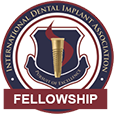What’s the deal with bottled water?
July 10th, 2024

As more people turn to bottled water and away from the tap, they may be missing out on one important ingredient that most brands of bottled water fail to include: fluoride! Because fluoride helps strengthen teeth, it is an important component of maintaining good oral health. Our friends at the American Dental Association have endorsed both community water fluoridation and the use of fluoride-containing products as a safe means of preventing tooth decay.
In fact, the Centers for Disease Control and Prevention has also warned that “bottled water may not have a sufficient amount of fluoride, which is important for preventing tooth decay and promoting oral health.” If you are avoiding fluoridated tap water in favor of ever-more-popular bottled water, you could be missing out on the levels of fluoride necessary to make a difference in your oral health. One 2012 study in the Journal of Pediatric Dentistry found that more than 65 percent of parents using bottled water did not know what levels of fluoride it contained.
If bottled water happens to be your or your children’s beverage of choice, check the label to make sure your brand contains fluoride. Of course, simply drinking fluoridated water is not a magic ticket to perfect teeth. To keep your pearly whites in tip-top shape, it’s important to brush and floss daily and avoid sugary sweets, in addition to maintaining your fluoride intake.
Questions about fluoride? Give us a call at our convenient Lebanon, NJ office! We look forward to hearing from you!









